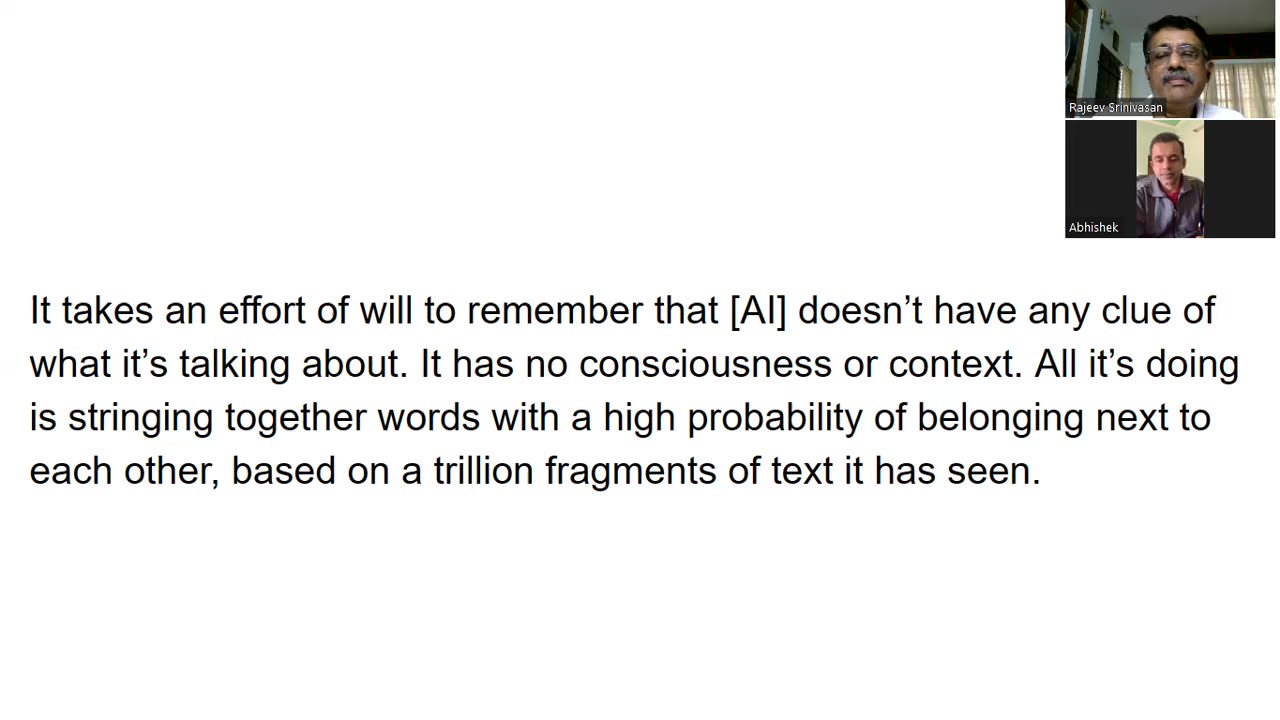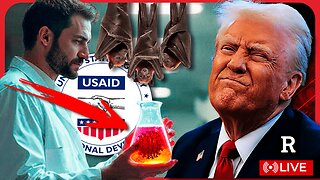Premium Only Content

Ep. 98: Medicine and generative AI: Lessons from one for the other, and for India
My guest, Dr. Abhishek Puri, is a Radiation Oncologist with an interest in AI and healthcare policy. He blogs at www.radoncnotes.com and tweets as “radoncnotes”.
We wrote a column in Open magazine, at https://openthemagazine.com/columns/artificial-intelligence-like-allopathy/ which looks at what can be gleaned from our experiences with Allopathy and how these can be translated to how we deal with generative AI. In this video, we summarize our findings.
Of particular note is the fact that chatGPT, in summarizing our article, completely ignores Ayurveda, despite the fact that we do mention it several times. As Abhishek points out, this suggests the eclipse of Indian knowledge altogether, as western biases creep into epistemology: Indian knowledge simply doesn’t exist as far as the western Internet is concerned. We have seen this before in how Indian mathematical advances and scientific advances have been either erased, or generously ‘awarded’ to the Greeks or Chinese or someone else.
Although our purpose in writing this essay was to consider how statistics-based (ie. stochastic) systems work when we expect them, unconsciously, to be predictable in all cases (ie. deterministic), this issue of the erasure of Indian knowledge is a particularly important concern. Others have also expressed the concern that with generative AI’s mimetic skills, copyright may become a thing of the past.
Intellectual Property Rights need to be protected, and in particular, data. India needs to develop its own generative AI systems: not the large language models (these are available in open source), but the data to train them with an Indian context and in multiple Indian languages. This is a major challenge.
-
 LIVE
LIVE
SpartakusLIVE
5 hours ago#1 Shadow BANNED Hero
221 watching -
 2:17:46
2:17:46
Kim Iversen
6 hours agoTrump To SMUG Netanyahu: Let's Clear “All” Palestinians From Gaza! | RFK Jr, Tulsi Move On To Round Two
47.8K160 -
 30:25
30:25
Standpoint with Gabe Groisman
1 day agoDemocrats Are Stalling Trump Appointments with Senator Rick Scott
68.1K15 -
 1:00:24
1:00:24
The StoneZONE with Roger Stone
6 hours agoAnthony Fauci’s Brutal History Of Animal Torture Exposed! | The StoneZONE w/ Roger Stone
45.3K13 -
 1:03:38
1:03:38
Man in America
7 hours agoUSAID Corruption, $21 TRILLION Missing, & the End of the US Global Empire?
22.1K3 -
 56:38
56:38
Flyover Conservatives
7 hours ago6 Steps to Take Advantage of Trump’s New Golden Age! - Clay Clark | FOC Show
18.3K1 -
 1:15:25
1:15:25
Glenn Greenwald
7 hours agoTulsi and RFK Jr. Approved by Key Senate Committees; Trump Meets Netanyahu: Wants to Cleanse Gaza; Pro-Palestinian Group Suspended at UMich | SYSTEM UPDATE #402
77K93 -
 1:43:57
1:43:57
Danny Polishchuk
7 hours agoThe Funniest Call In Show On Earth - Live From New York City's Best Comedy Club
35.2K1 -
 1:41:13
1:41:13
megimu32
6 hours agoON THE SUBJECT: Will the Super Bowl Be WOKE??!
30K6 -
 1:18:26
1:18:26
Redacted News
8 hours agoBREAKING! USAID Created and Funded COVID-19 Virus and Bioweapons, RFK and Tulsi pass major hurdle
150K194